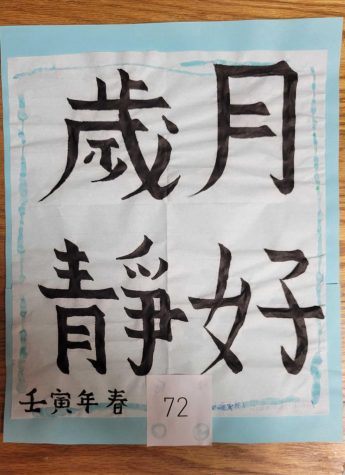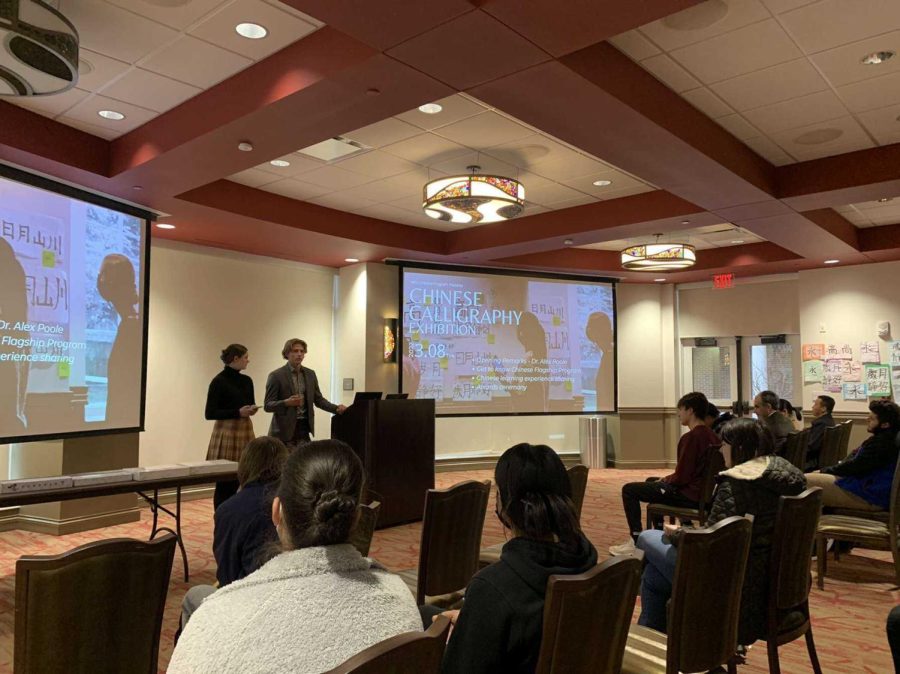Chinese Flagship Program hosts calligraphy exhibition
March 8, 2022
The WKU Chinese Flagship Program presented a Chinese Calligraphy Exhibition on Tuesday, March 8 in the HCIC multipurpose room. The event featured the works of students in CHIN 208, the Chinese calligraphy course, and had open voting for the day for the public to choose the top three works out of 101 pieces.
The event was hosted by two first-year Chinese Flagship students, who explained the benefits of the flagship program through their experiences. It also featured remarks from upperclassmen in the flagship and WKU faculty members.
“One of the main things we promote at Modern Languages is that we always want them to be learning something new,” Alexander Poole, head of the Modern Languages Department, said. “It’s a great opportunity to learn more and come together. This is a really wonderful program and I hope that students continue to take these courses.”
All the flagship students agreed that learning within the flagship forms a unique community and offers the chance to immerse themselves in Chinese culture.
“If you want to learn Chinese in an authentic way, there’s no better place to do so than here,” Noah Lyles, a junior political science major in the flagship, said in his remarks.
Awards were then given for first, second and third place, as well as recognition awards. Zane Willgruber and Abby Yarbrough placed first in the exhibition.

“This class has been really fun for me, and it was so refreshing to have this in my workload when I haven’t had an art class in so long,” Yarbrough, a first-year flagship student, said. “It allows me to have a place where I can express myself creatively and to have an artistic elective within my other coursework.”
This is the fourth Spring Chinese Calligraphy Exhibition at WKU. For many, CHIN 208 is their first experience with Chinese language and culture, since no previous knowledge of the language is required to participate in the art form.
Sloane Wang, an instructor of CHIN 208 and a Fulbright Foreign Language Teaching Assistant, spoke on how this course is beneficial to all students.
“It’s a gateway for them [students] to get to know more about Chinese language and culture,” Wang said. “It’s an art form that builds on the foundations of Chinese, so not only are they learning the art form but also the language, which is really a good option for beginner students to take.”
News reporter Alexandria Anderson can be reached at [email protected].















